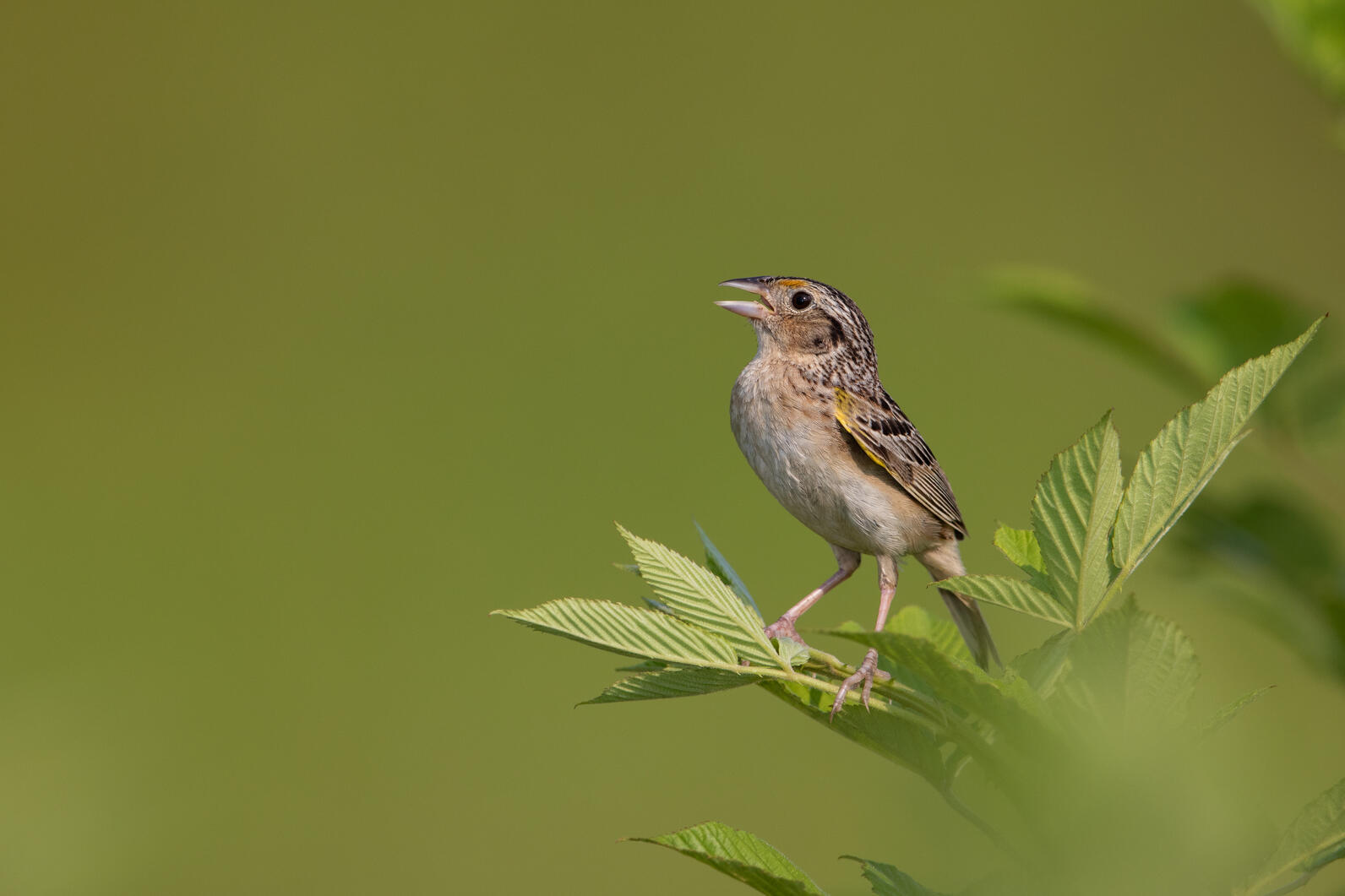At a time when most of the State of Vermont was focused on flood response, the Vermont Agency of Natural Resources quietly issued a permit on Friday, July 14, retroactively authorizing the Vermont Agency of Transportation (VTrans) to destroy critical Grasshopper Sparrow habitat at the Franklin County Airport.
The Grasshopper Sparrow is state listed as Threatened in Vermont and found in very limited numbers. In fact, recent surveys estimated the breeding population in Vermont to be twenty pairs and the Franklin County Airport is one of only two remaining strongholds in the state. The grasslands around the airport have supported this species for decades and the site currently has the largest breeding population in the state. Yet, somehow, a project to expand the airport was designed, approved, and began work this spring without securing a Threatened and Endangered Species Takings Permit, as required by law under the Vermont Threatened and Endangered Species law (10 V.S.A. Chapter 123).

The Grasshopper Sparrow is part of a group of grassland birds facing dramatic declines due in part to development, habitat fragmentation, and incompatible agriculture. As a state-listed species, Vermont has a legal obligation to protect existing habitat where the species occurs. Grasshopper Sparrows prefer grassy habitat that is sparsely vegetated or with open areas of bare ground. True to their name, they eat grasshoppers, but also beetles, caterpillars, bugs, and spiders, and often walk or run rather than fly to catch their prey. Fortunately, the species can tolerate management including light to moderate grazing and specifically timed mowing of hayfields.
Vermont’s endangered species law requires anyone with a significant project, whether a state agency or anyone else, to get prior approval. This requirement assures that no one can destroy habitat, and then promise to fix it after-the-fact. The approach taken by the State of Vermont in the case of the Franklin County State Airport not only ignores the process established in the law, but is unnecessarily putting the bird and the project, with its acknowledged economic and community benefits, at risk.
You can read the public comments that Audubon Vermont, Vermont Center for Ecostudies, and Vermont Natural Resources Council submitted on the issuance of the permit below.





